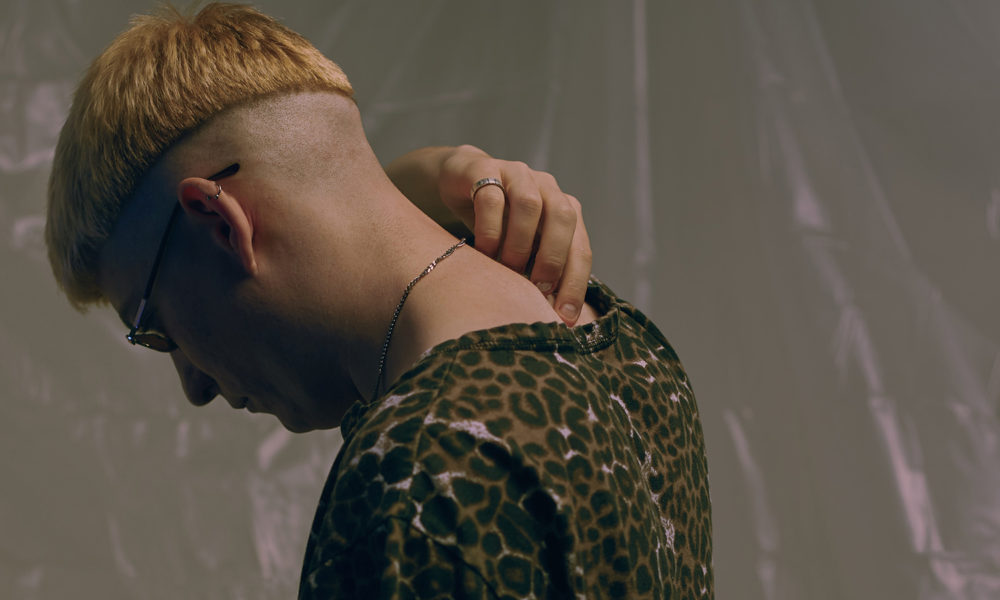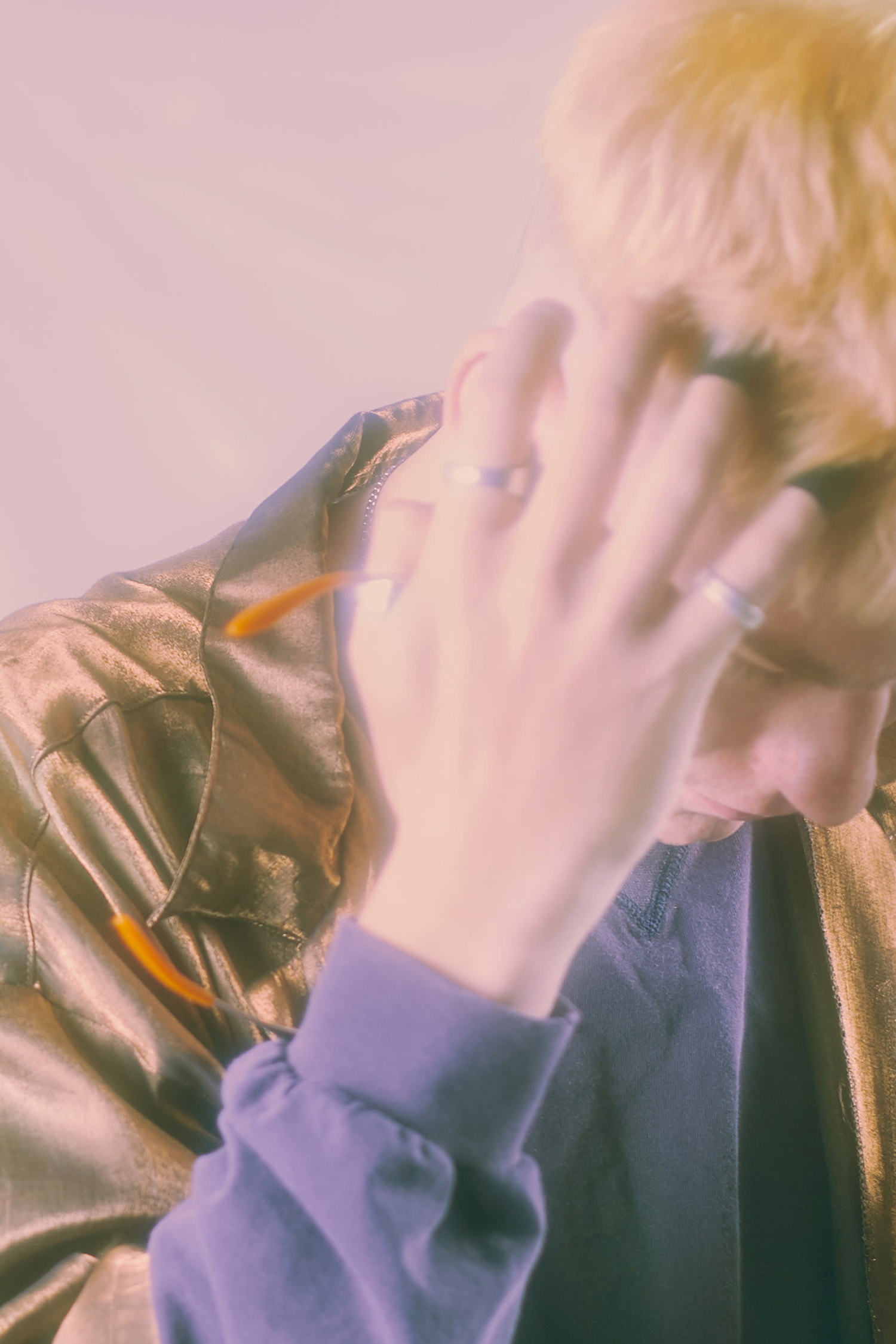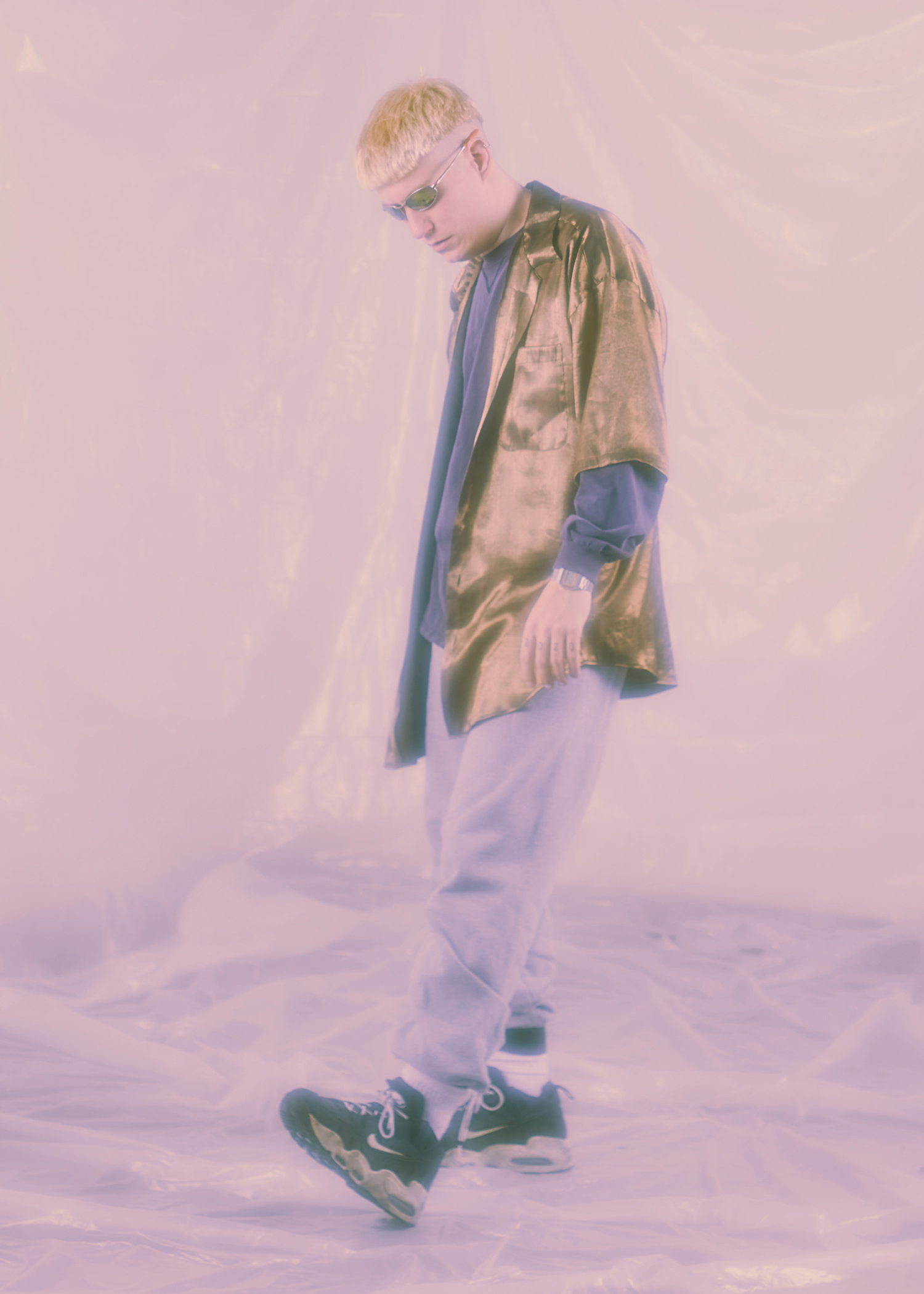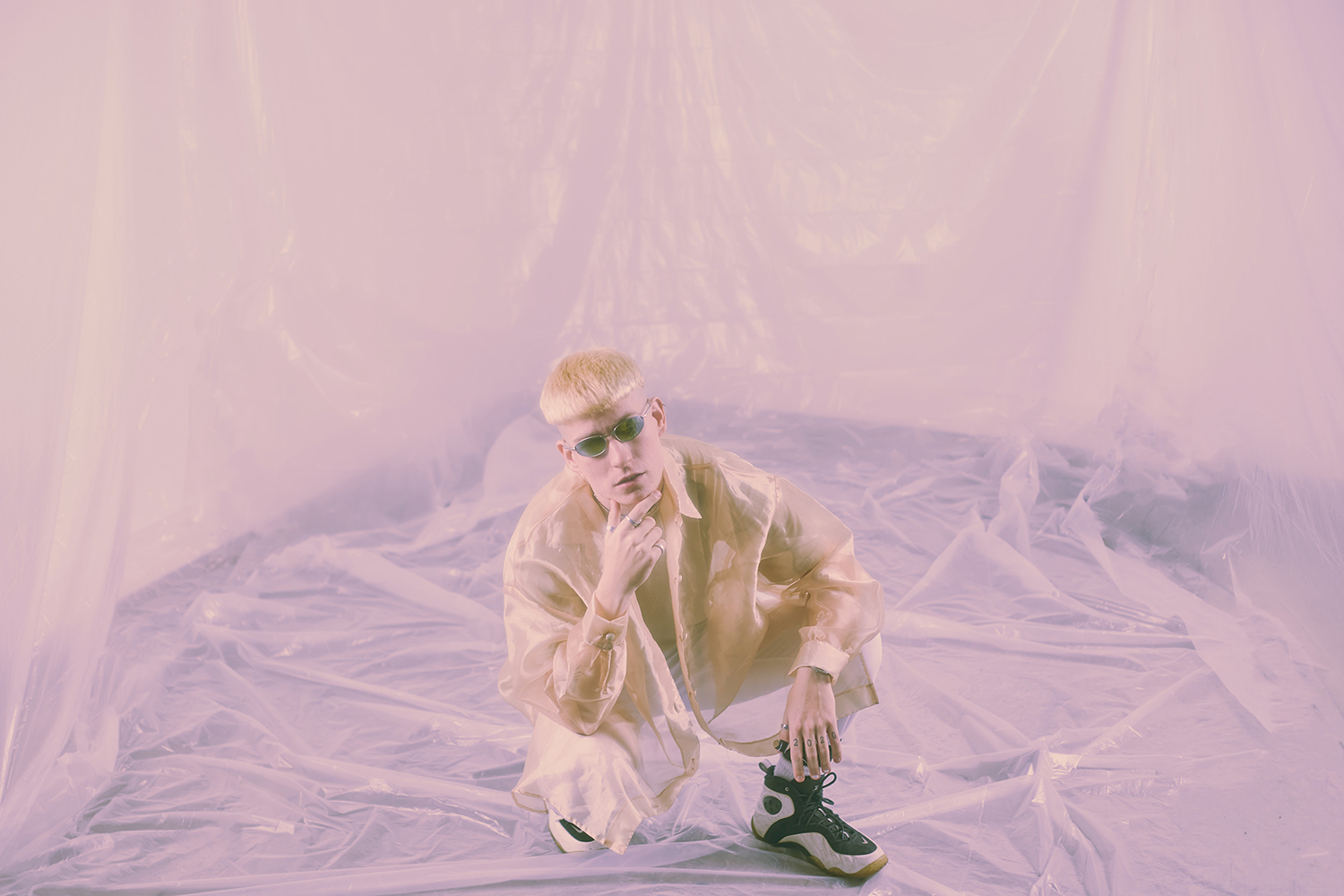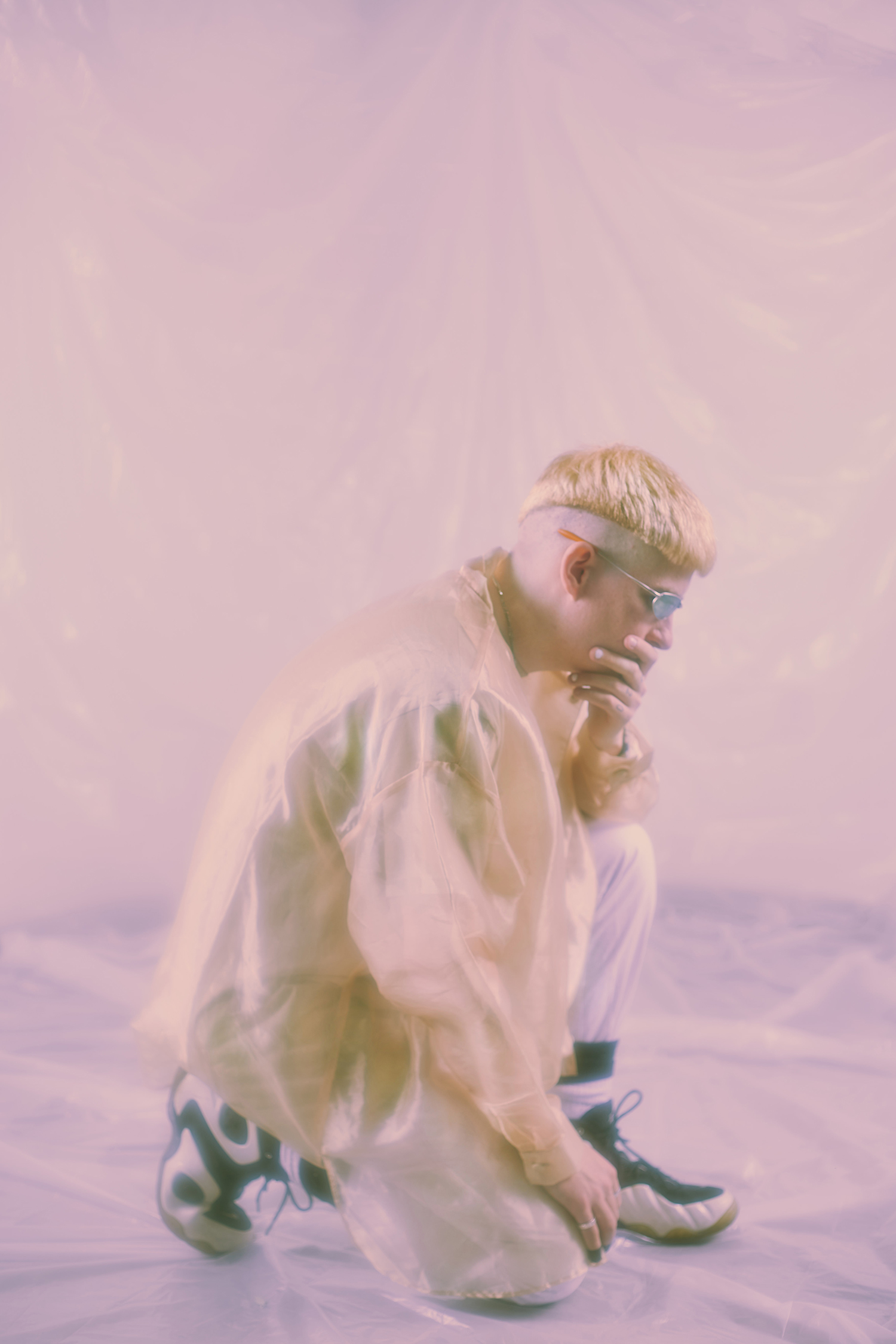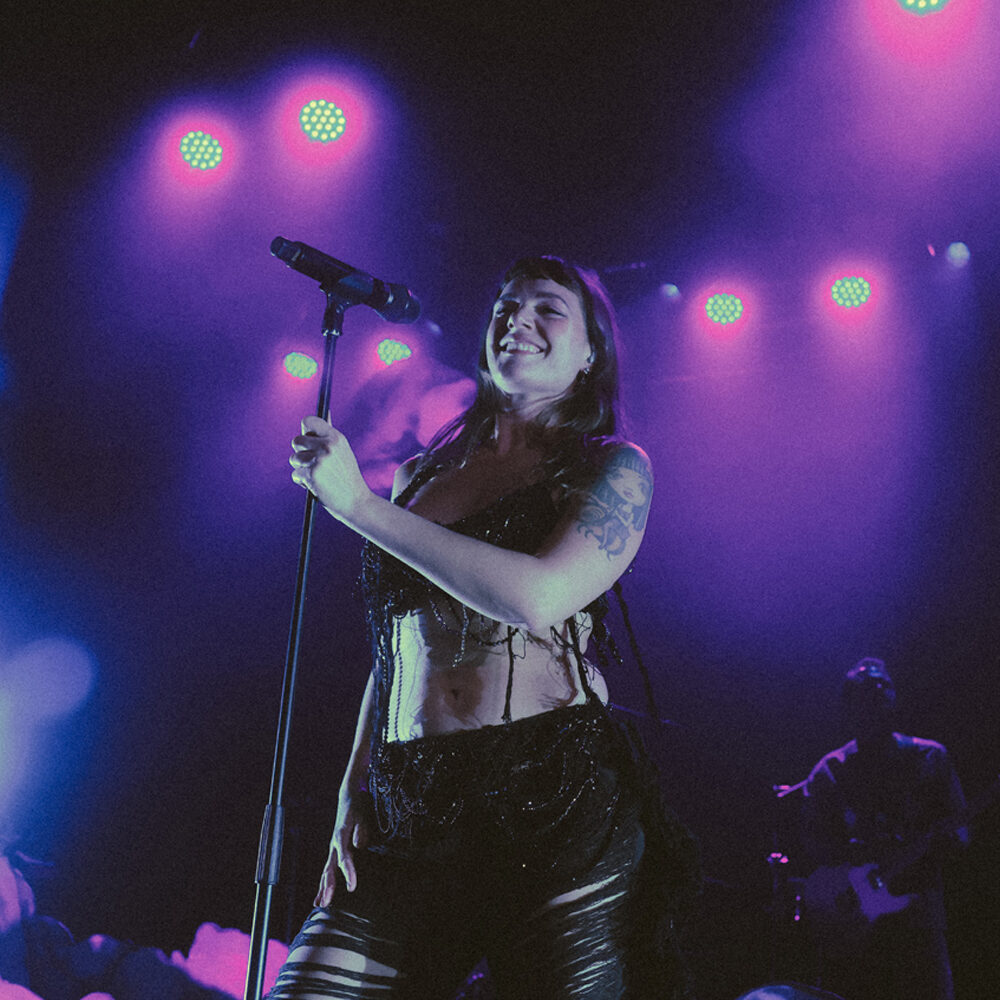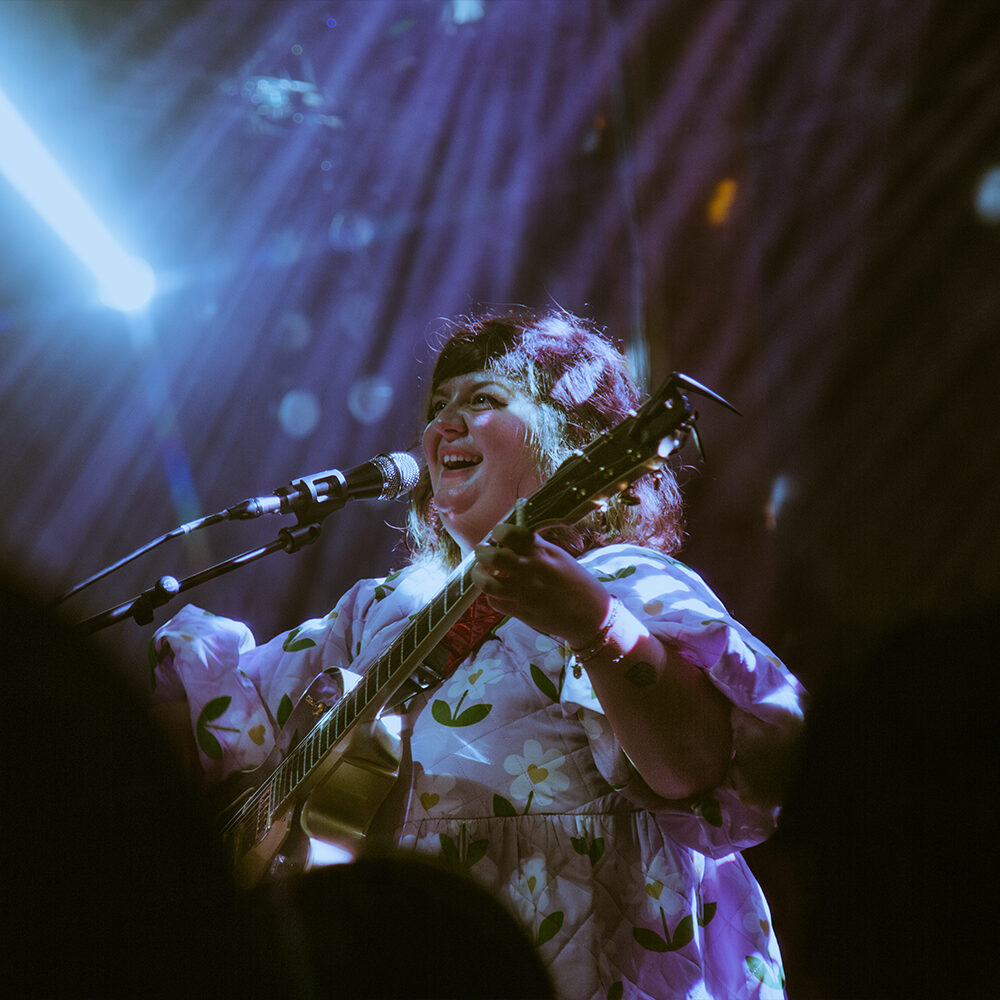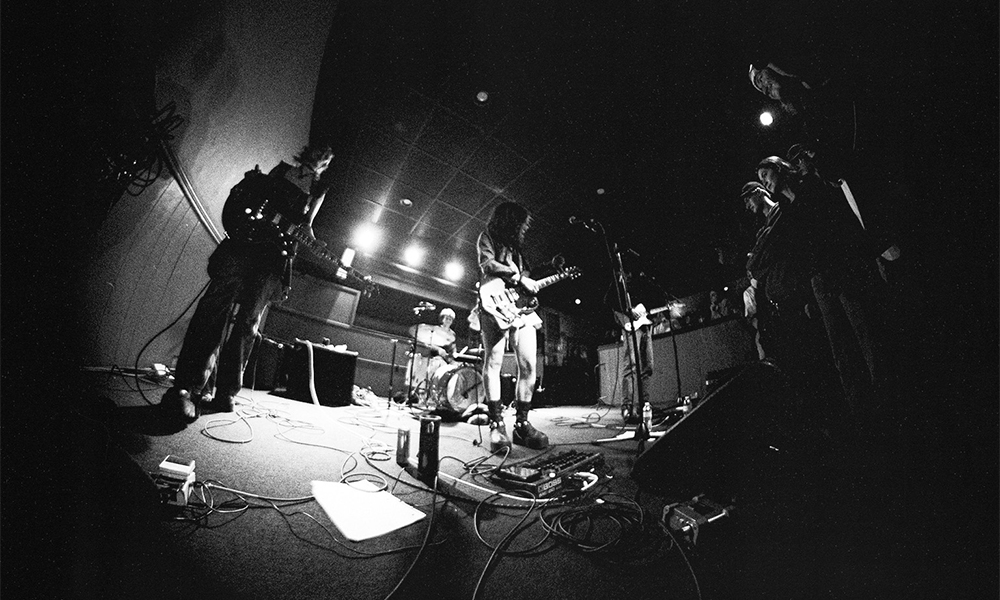Nashville native MESSYAH is a modern-day, lyrical prophet. Consider this an official “Risk of Enlightenment” warning for the following Q&A you’re about to read. A student of God turned existentialist melody maker, he provided Local Wolves with one of the most intellectually stimulating—and introspective—conversations about music, religion (or lack thereof) and breaking social stigmas. With MESSYAH’s debut album 2055 already out last month—which he describes as “a concept album about a crazy acid trip in the year 2055”—he’s on his way to joining the ranks of artists continuously challenging our belief systems and questioning what we really want out of life.
Alright, first things first, your stage name: MESSYAH. Taking into account the subject matter of most of your music— which occasionally challenges religious beliefs—is this a play on the biblical character Messiah? Is the “y” in the name questioning the pedestal that religious figures—such as Messiah—are put on and their validity, or is the “y” there for another reason completely?
MESSYAH — Deep dive right away. I like it. The idea for MESSYAH came because I was trying to think of something that immediately put a loose religious idea in a listener’s mind before they ever listened to my music. Also, being a non-religious person myself, I believe that the concept of salvation can come from within. So in a roundabout way, I’m my own messiah. Which is funny I guess, MESSYAH has kind of become who I am as an individual. My friends and community call me MESSYAH instead of Nic. The “y” was to differentiate on the internet, but also to plant in a listener’s mind the idea of questioning. I think it’s important to step back and ask yourself “why” in most situations. Why do you believe that? Why are you doing this specific thing? Why are you here in this world? In most of my music I try to convey a sense of questioning with my lyrics because I’ve become a way more centered and honest person through doing so myself.
Along the same lines as the first question, your EP EXYST (which was released digitally on November 18, 2016) is on Bandcamp and it carries on the same theme as the “y” in your name. The trend even continued in your song titles, for example there are songs like “afterlyfe” and “godlyke.” What was the message behind changing the “i” in each of the words to a “y,” more specifically in the songs that seemed to be named after concepts, feelings and theories we question in society and life?
MESSYAH — Damn, that’s a deep dive! I eliminated that record from most of the internet haha. Truthfully, that spelling change started because that’s the way I used to text people. I use to replace all my “i’s” with “y’s” when I’d text a friend. But also, its playing on what I said before about questioning. As far as the song titles go, I chose names that again put a spiritual/religious sense in a listener’s mind. EXYST was my first project and I really wanted to hammer that aesthetic with whoever found my music.
Now, onto your distinct sound! Your sound covers a lot of different genres, and if we were to try to compartmentalize it I truly believe we wouldn’t be able to. Your sound can go anywhere from existential pop, to electropop or to the deep, reverberating and hypnotizing beats of trap. Growing up in Nashville, how were you able to develop your sound and were there any specific influences that led you to finding it?
MESSYAH — Thanks, I appreciate that. I truly just want to create art, and reflect my creativity as authentically as I can. That’s probably why a lot of my music hops back and forth between genres. To me my music is genre-less. I consider myself a rapper, but I really only rap on 50% of my beats. Also, I always tend to mix and match opposites. Like on a more smooth, pop track, I’ll rap, and on a minor key trap beat I sing. It all depends what the song calls for, and if I consider what I’m doing art. For a long time I wanted to do what was considered “dope” or “cool” in music. Think of it like clothes. When I first moved to Nashville 3 years ago, the majority of people that I saw all looked and dressed the same. I think it’s human to want people to like you, think you’re cool, or just to fit in. I had a man bun, wore all black with construction boots and tried to make really chill, indie, guitar music. It’s not that something happened in my life, I think I just became more confident over time and started to be more “me” rather than try to fit a mold. I mean now, I just try to find the weirdest things in my closet to combine, I have a bleached blonde bowl cut, and I wear mostly womens clothes that I thrift. There was no example or culture I was trying to follow, so I know its me. Its whatever creativity is inside my head. That’s how I think about music too. Why make 10 songs that sound like the same thing? Why not just make whatever you make? My vocals are really inspired by Young Thug and Travis Scott. A lot of my production is inspired by 90s R&B and house music. I mean, there’s metalcore breakdowns in my new record hahaha. It’s not that I’m trying to be something. If I’m “trying” in a creative capacity I’ve missed the point. I think thats why its hard to fully nail down my sound because I’m not “trying” to sound like one specific thing. I just sound like me.
The current environment in the United States has brought up the importance of discussing hard topics in public; signifying that discussions of mental health, sexuality, and race will no longer be pushed to the side or avoided by people in power. Now more than ever, it’s important to start a dialogue that is inclusive and understanding. Which is what you are doing in a creative and unique way through your music. Is there a reason why you discuss topics such as faults within religion, toxic societal expectations and mental health?
MESSYAH — Truthfully, I write lyrics that convey my own story the best. I grew up in religion and eventually went through undergrad to be a pastor. The process of leaving the faith and transitioning to a more non-spiritual worldview was incredibly difficult, but needed. Honestly, it was the most defining thing about my life. That really is the reason I question spirituality in my lyrics. Religion and certain systems of spirituality hold some very unhealthy and bad ideas. For me it was incredibly freeing to step out of a system I was drowning in, and still be able to find meaning on the other side. As far as mental health is concerned, I think there are a bunch of problems in my head. Whether its a confidence complex, or struggling from depression and anxiety. I find writing lyrics that convey my story and what is happening in my brain can hopefully relate with my fans.
With lyrics as compelling and thought provoking as yours, it’s hard not to feel an overwhelming sense of responsibility as an artist to present these personal stories in way that will be universally understood. What do you hope your music ignites in your listeners? Do you hope it challenges their beliefs and drives them to question how they view their surroundings? Have you received any feedback regarding the subject matter of your songs from fans and listeners?
MESSYAH — Damn, that’s so difficult. I used to want my listeners to be challenged or driven to think and question. I think that made a lot of my music, ‘preachy and stale’. Now I just want to create music that is inspiring in specific and non-specific ways. There’s a lot of people in the world that are like me who grew up in the church and no longer consider themselves believers. I want to write music and lyrics that makes that listener feel understood and spoken for. There’s a lot of younger people who struggle with depression, financial instability, and lack of direction. I want to speak to that experience through my story. All in all if anything I feel a responsibility to convey my story, experiences, and ideas as powerfully as I can to instill in a listener some type of inspiration, or desire.
Your song “GOD” is an example of your honest writing style and your fearlessness when it comes to sharing your doubts about how you’ve lived your life and are breaking away from beliefs that have—in a sense—held you back. How was the process of writing that song and did it help you to understand and take a step back to really assess what had happened?
MESSYAH — So the song “GOD” was something I wrote about a year ago, trying to structure my loss of faith in the same way as a breakup. It’s basically a breakup song to a supreme being instead of a girlfriend. Lyrically I referenced a lot of experiences that led to my unbelief. Like five years ago, I was in San Diego at Sunset Cliffs overlooking the ocean. I was in the thick of my existential crisis and had the thought for the first time, “What if there’s nothing beyond? What if this is all there is?”. I remember in the winter of 2012 driving my car deep into the countryside of Iowa begging for God to show me something, anything. I felt like Elijah (biblical prophet) asking for God to send fire from the sky, asking for God to just show up. It’s always good to take a step back and process.
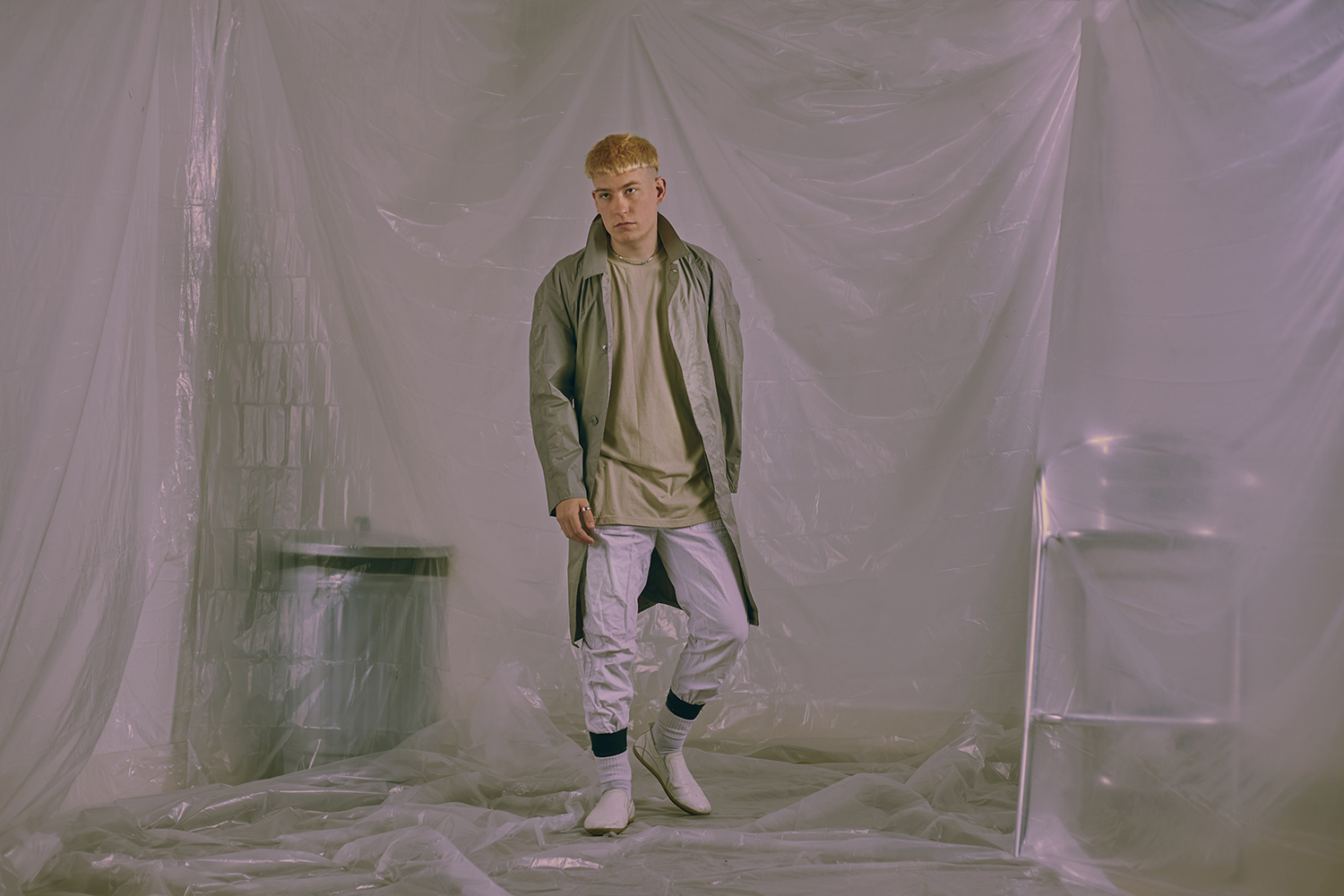
Were you always interested in pursuing a career in music? If not, were you doing anything beforehand and what made you want to pursue music? And currently, besides making music, is there anything else that you’re pursuing creatively?
MESSYAH — I would say yes. Have you ever heard of the theory of feeling rather than action? It basically is the idea that humans ultimately want to feel a certain way, rather than do certain things. Like for example, someone who wants to be a mom doesn’t really want to ‘do’ the actions of changing diapers or waking up at 3a.m. every night to a crying baby. They really want the feeling that comes with seeing your child grow up, the feeling of being a mother. Someone who says they want to travel the world doesn’t actually desire sleeping on the ground outside, or staying at dirty hostels, or walking hundreds of miles in bad weather conditions. They want the feeling that seeing Tokyo brings them, or the feeling of looking out over Machu Picchu. In the same way, I love playing and creating music, but I really just want to feel influential. I want to feel that some lyric I said, or some soundscape I created, influenced someone in a positive way. Connected with someone on a deeper level. Music in the tool or vehicle for influence. Even now though, there are plenty of days where I wake up with the knowledge that every area of my life would be better if I wasn’t an artist. Financially, relationally, mentally, every area would be so much healthier and better. But when it comes down to it, being an artist is the only thing that keeps me awake until 5a.m. It’s the feeling of listening the bounce of a new song in your car for the first time. It’s the feeling of people saying your live performance was motivationally inspiring.
As far as production goes on your music, do you produce your own songs as well as write them, or do you work with a collective of people? If so, who are they and how did you all meet-up and work on your various projects together?
MESSYAH — I do almost everything myself. Recently I’ve even started mastering my own songs just to keep everything close to home. I have an amazing community of artists, visionaries, and friends around me who contribute to a lot of my art. Sometimes it’s collating on production, sometimes its writing better hooks, and sometimes its just sitting on the porch inspiring one another. It would be impossible to trace the origin of a lot of people in my crew. But it’s safe to say there’s about 8 or 9 people in my life that are actively involved in MESSYAH and I with their projects as well. Shoutout to the porch crew and my gang.
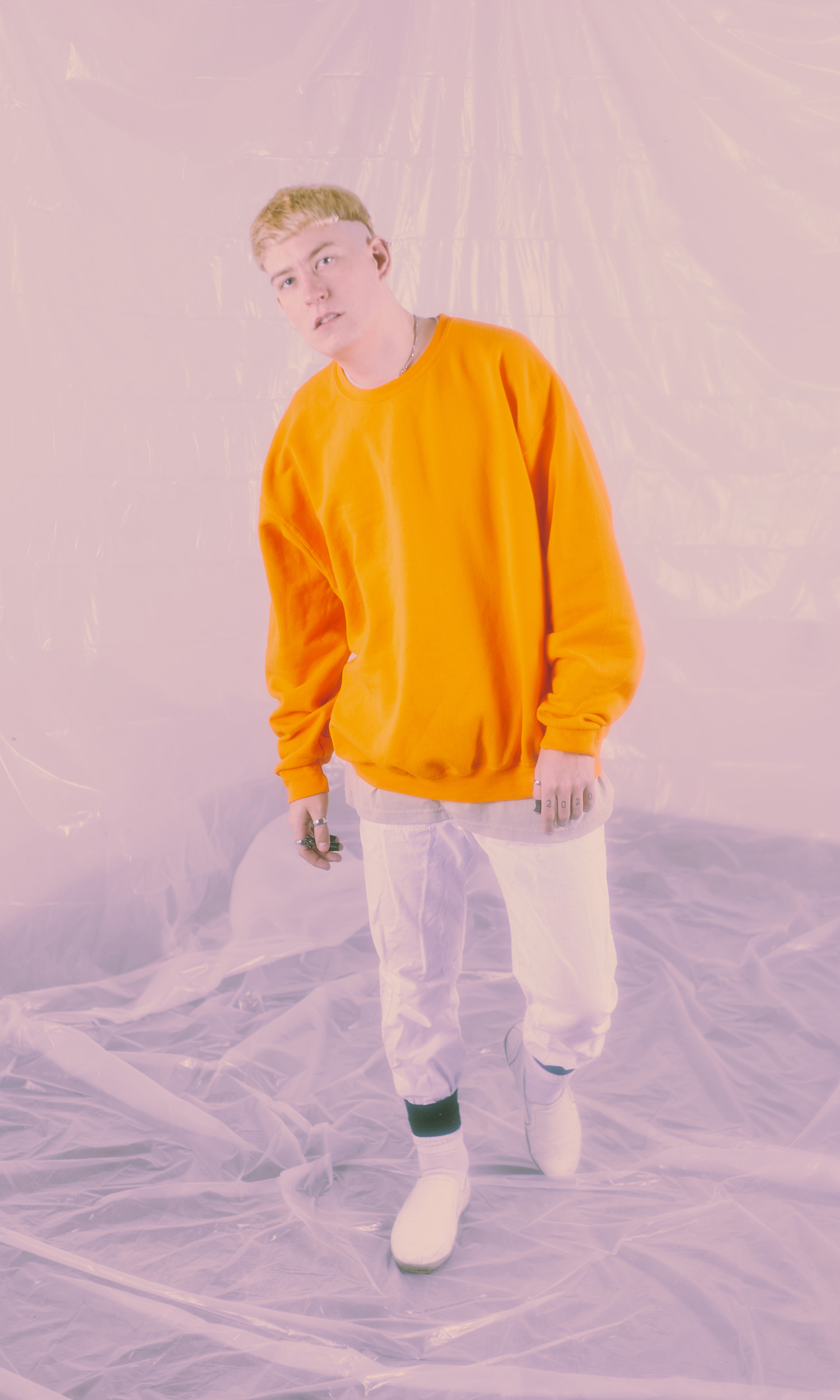
Your debut album 2055 released on February 23rd and my main concern is: what vibe should I be in when listening to this? Should I be completely mellowed out in a room illuminated in purple lights or should I go for a night drive and blast it through the sound system? How do we get the full effect of the album?
MESSYAH — Amazing (laughs). Well, the whole thing is actually a concept album about a crazy trip in the year 2055. So if you want the full effect… you should either find a time machine… Truthfully, both your options sound great. Purple is my favorite color so it’s hard to turn option A down, but at the same time there’s a lot of hype driving songs on the album. Here’s my recommendation: Que the album with your earbuds at your house. Track 1: Take a shot and put on your best swag. Track 2: Call an uber to take you downtown. Track 3: Walk down the steps to a basement nightclub and lose yourself on the dance floor. Track 4, 5, 6, and 7: Try to meet someone on the dance floor, take them home with you, and after making love explain how you are emotionally incapable of truly connecting with other human beings. Track 8: Call your best friends to pick you up and cruise around town. Track 9: Do some freestyle on your friends porch before getting too faded. Track 10: Fall asleep at 3a.m. That’s the full effect I guess!
Lastly, just for fun, if you could collaborate with anybody living or dead—from opposite or the same genre—who would it be and what would the collab sound like?
MESSYAH — Obviously Kanye West, he replaced religion in my life.

